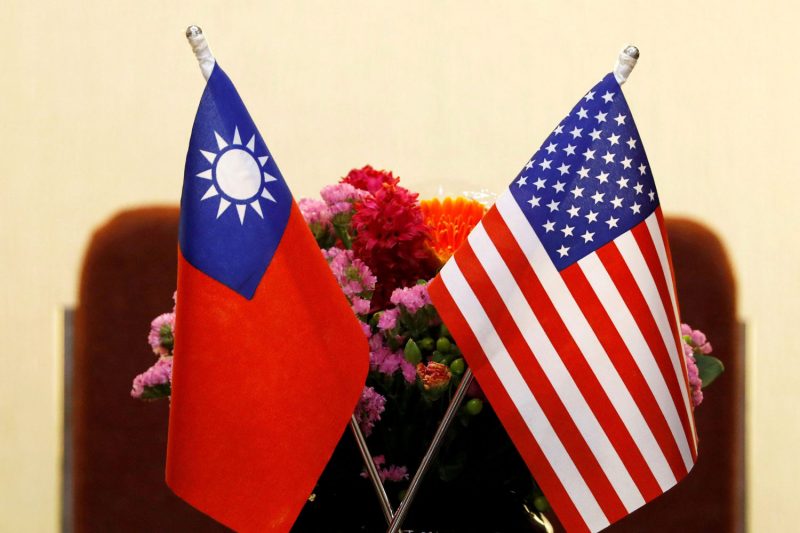The United States and Taiwan have agreed to start formal trade talks shortly on a new initiative with the goal of reaching “economically meaningful outcomes”.
The US Trade Representative’s Office said on Wednesday the two sides had “reached consensus on the negotiating mandate”, noting that the talks would be undertaken by the American Institute in Taiwan (AIT) and the Taipei Economic and Cultural Representative Office in the United States (TECRO).
The USTR said the first round of talks on the the US-Taiwan Initiative on 21st-Century Trade were expected to take place early in autumn.
The new initiative, which was announced in June – and is opposed by Beijing, is separate from the Indo-Pacific Economic Framework for Prosperity (IPEF) unveiled in late May by US President Joe Biden with 12 Asian nations.
“We plan to pursue an ambitious schedule for achieving high-standard commitments and meaningful outcomes covering the 11 trade areas in the negotiating mandate that will help build a fairer, more prosperous and resilient 21st-century economy,” Deputy US Trade Representative Sarah Bianchi said in a statement.
The negotiating mandate released along with the announcement said the United States and Taiwan have set a robust agenda for talks on issues like trade facilitation, good regulatory practices, and removing discriminatory barriers to trade.
It said the start of the formal talks would be for the purpose of reaching agreements with “high standard commitments and economically meaningful outcomes”.
ALSO SEE: China Says US Stirring ‘Confrontation’ as Group Lands in Taiwan
Taiwan Hopes Talks Start Next Month
Taiwan’s top trade negotiator John Deng told reporters in Taipei on Thursday he hoped talks could start next month, and that this could one day lead to a free-trade deal the island has long sought with the US.
Deng said one topic would be China’s economic coercion, a reference to actions Beijing takes to block trade with countries it is in dispute with, such as when Lithuania allowed Taiwan to open a de facto embassy in its capital.
“Its economic coercion targets are not just the United States or Taiwan, it’s done to a lot of countries. Its harm to the global economic and trade order is great,” he added.
Despite the lack of formal diplomatic ties, Washington has been keen to bolster support for the self-ruled Taiwan, especially as it faces stepped up political pressure from China to accept its sovereignty claims.
China has said it “firmly” opposes the new Taiwan-US trade initiative and will take all necessary measures to safeguard its sovereignty, security and development interests, the Commerce Ministry said on Thursday.
The “One China” policy is a prerequisite for Taiwan’s participation in economic cooperation with foreign countries, ministry spokeswoman Shu Jueting said at a regular press conference.
Meanwhile, the Indo-Pacific Economic Framework – a separate proposal by the Biden Administration – involves trade with Australia, Brunei, India, Indonesia, Japan, South Korea, Malaysia, New Zealand, Philippines, Singapore, Thailand and Vietnam.
- Reuters with additional editing by Jim Pollard
ALSO SEE:
China Imposes Sanctions on Pelosi and Family – CNBC
Chip Stocks Suffer as Pelosi Taiwan Trip Stokes Tensions
US May Slip Into Recession if Taiwan Chip Link is Cut – CNBC
Taiwan Says China Attack ‘Worse Than Ukraine’ for Supply Chains





















